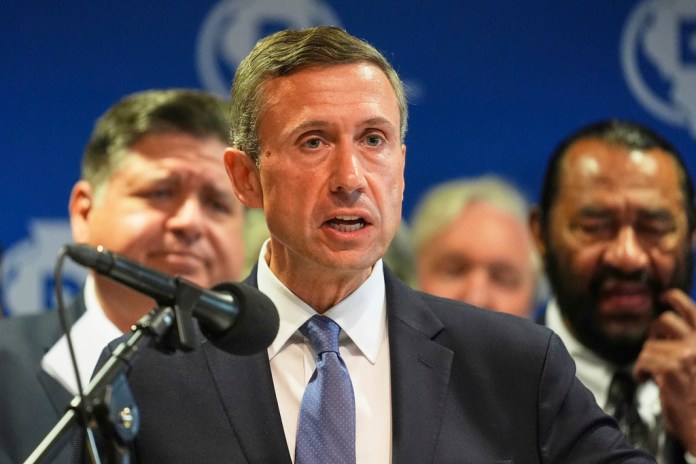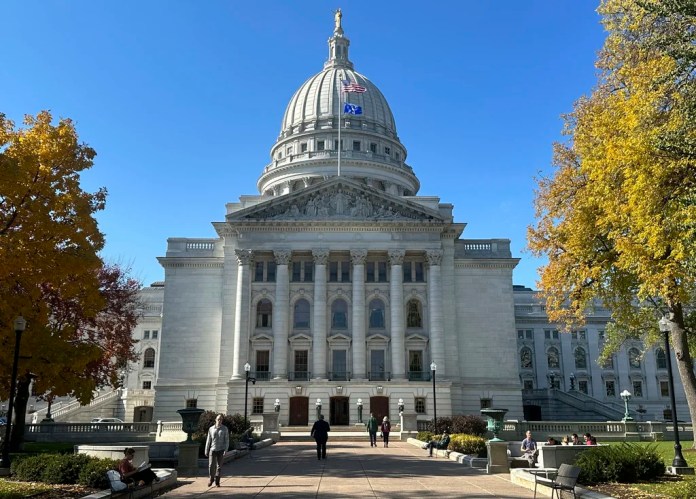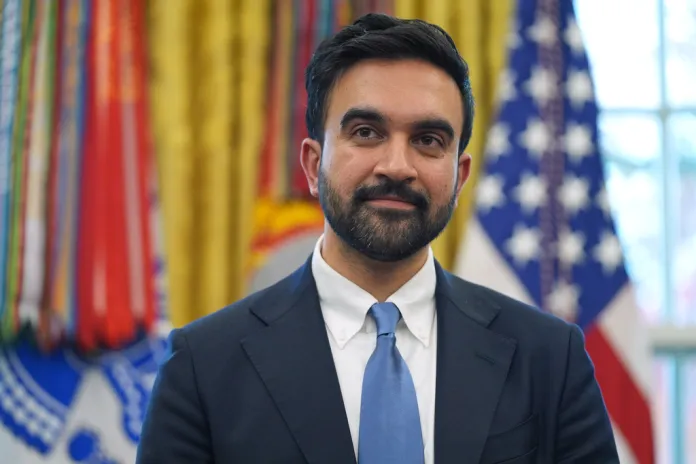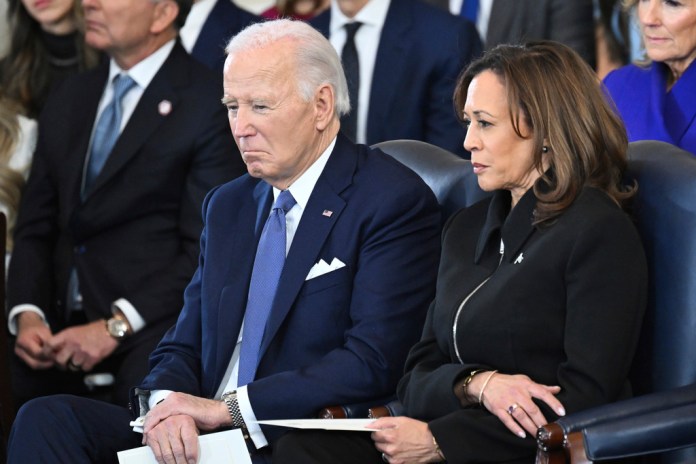Harris campaign grocery price control proposal could cause shortages – Washington Examiner
Vice President Kamala Harris has proposed a new initiative aimed at combating food inflation by implementing the first federal ban on corporate price-gouging within the grocery industry. Critics, including economists and budget experts, have derided the plan as a superficial election-year maneuver intended to divert attention from inflation’s causes, such as government spending and regulations. They warn that penalizing companies for raising prices could inadvertently lead to supply shortages, as price controls historically lead to increased demand without a corresponding increase in supply.
Critics argue that rather than address systemic issues behind inflation, the proposal scapegoats grocery companies. Some economists predict that if enacted, the plan could exacerbate food deserts, where access to food is already limited, and create disparities in grocery availability, benefiting some stores over others. The debate highlights the broader controversy over the causes of inflation, with Republicans attributing it to excess federal spending, while others blame corporate greed. the proposal’s potential consequences have raised concerns that it could cause more problems than it aims to solve.
Harris campaign grocery price control proposal could cause shortages
Vice President Kamala Harris’s new proposal to prevent “price-gouging” in the food industry is drawing criticism from some economists who say it is an election-year stunt meant to address her vulnerability on the topic of inflation — one that, if implemented, would backfire and cause shortages.
In its first major economic policy rollout, the Harris campaign announced Thursday that in order to target food inflation at the grocery store, Harris would try to enact the “first-ever federal ban on corporate price-gouging.”
The details of what such a proposal would look like haven’t been released, although the campaign said Harris would give authority to the Federal Trade Commission and state attorneys general to “investigate and impose harsh penalties” on corporations who break the administration’s “price-gouging” rules.
Critics dismissed the plan as an election-year stunt. Brian Riedl, a budget expert at the Manhattan Institute, told the Washington Examiner he did not think it was a serious proposal that would come to fruition. He said the announcement is a deflection and the Biden administration has failed to own up to its role in pushing up inflation through “runaway spending, deficits, tariffs, and regulation.”
“And rather than take responsibility, they’re scapegoating evil, price-gouging grocery companies in order to avoid the blame,” he said. “I don’t think there’s anything that’s going to come of this initiative. I think it is entirely a rhetorical way of taking the heat off them for the inflation that they made worse.”
Penalizing companies for raising prices would likely have the unintended consequence of disrupting supplies, experts said.
“Price controls have never worked in any instance — they only create shortages that eventually result in prices skyrocketing when the price controls are finally surrendered,” Riedl told the Washington Examiner.
Ryan Young, senior economist at the Competitive Enterprise Institute, also said politics were behind the proposal and compared it to other election-year ideas, such as former President Donald Trump’s suggestion of a new across-the-board tariff regime.
“It’s posturing,” he told the Washington Examiner.
Grocery prices have caused consumers pain for years now, and are one of the most noticeable aspects of inflation, given that everyone has to eat. Grocery prices have only increased by 1.1% since last year, according to the consumer price index, but since January 2021, when President Joe Biden was sworn in, they have increased a whopping 21%.
Casey Mulligan, an economics professor at the University of Chicago who served as chief economist for the Council of Economic Advisers during the Trump administration, said access to groceries would diminish if Harris’s plan were to be implemented. He said “food deserts,” or neighborhoods that lack grocery stores, would only get drier.
“There would be some locations with empty shelves, and there’d be other locations with full shelves,” Mulligan said.
Price controls or anti-gouging measures are thought to create shortages by pushing up demand, as customers look to load up on the goods that are subject to the government-imposed discount. At the same time, suppliers are less willing to offer the goods, as they no longer command higher prices. The result would be shortages at grocery stores across the country.
So for instance, if bacon is one of the goods subject to such price parameters, instead of having to pay expensive inflated bacon prices, consumers might not be able to buy it at all, some economists contend.
Mulligan told the Washington Examiner that, historically speaking, somebody always benefits from price controls. He predicted that if the plan were to be implemented, some grocers would actually do very well.
“They will try to structure the price controls so that they harm some of the groceries more than the others, and the ones who are harmed less actually come out ahead because they get customers from the ones who are harmed the most,” Mulligan said.
Economists raised other objections to the plan as well.
Republicans and Trump have argued that the country’s yearslong bout with inflation is due in big part to excess federal spending by the Biden administration. But liberals of the Left have placed the blame on corporate greed and accused companies of running up prices to turn a profit.
Young noted that a problem with the idea that companies are price gouging is that grocery stores typically have a very low-profit margin.
“Grocery stores usually have a 1-3% profit margin, which is really low. High-end organic stores might have about a 5% profit margin, but for reference, the stock market averages an 8% return per year,” he said. “One- to three-percent compared to 8% — there’s not a lot of room for price gouging when profit margins are that low.”
Young also said the policy could be contradictory for the FTC because if stores need to save money and make do with lower profit margins, there will probably be mergers and consolidations. Notably, the FTC under Biden is currently suing grocery giants Kroger and Albertsons over their proposed merger.
“It directly contradicts what the FTC is already doing in antitrust,” he said.
Harris is set to preview the plan and other economic policy positions during a Friday campaign speech.
Mulligan said, policy aside, he isn’t even sure if announcing such a proposal is a good political move because he thinks voters realize that price controls don’t work.
“I’m not a politician, but I think a lot of people understand this. That price controls, they hurt the people they are supposed to help,” he said.
" Conservative News Daily does not always share or support the views and opinions expressed here; they are just those of the writer."




